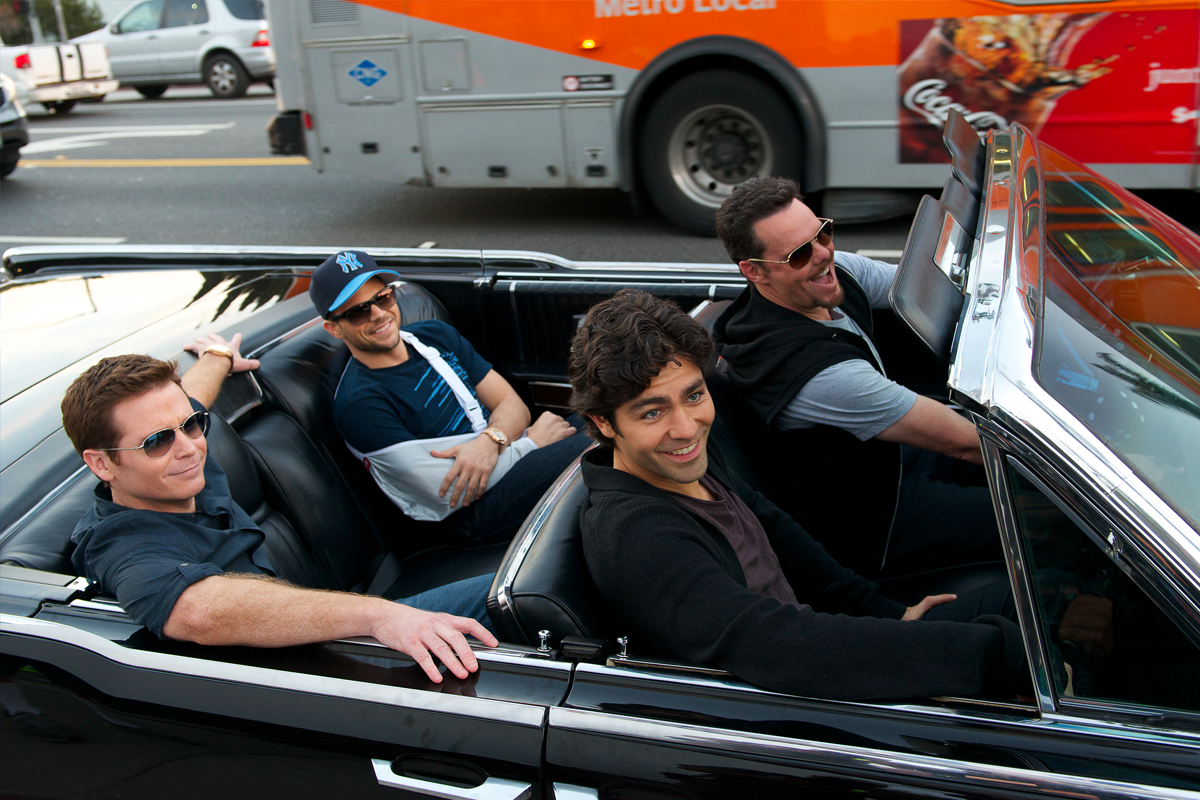My father used to often say: “Relationships are like wine, they get better with time.” Value greatly those relationships that survive the arrows of time. They have proven themselves worthy of your trust. On such sturdy foundations are great empires built.
Why Do They Matter?
Before looking at how we can build our relationships, we must first ask why? Why is it important?
Relationships matter. They matter more than you can possibly imagine when you first set out. That’s why all great leaders and all great cultures encourage friendships.
At my company, EG, we quietly promote a “four friends for life” policy. Our aim is that anyone who works with us for 3-years or more should end up with at least four friendships that last long after they have left EG.
This is particularly important for men. Research shows that men stop making new friends after the age of thirty-five. And since friendships tend to atrophy over time, many men by the age of sixty-five end up spending time only with their immediate family.
And yet all the longitudinal studies show that longevity, health and happiness are significantly improved if a person has multiple active friendships outside of family.
With that being said, here are a few pieces of wisdom I’ve learnt throughout my life for men to nourish and continually build upon the foundations of the friendships they’ve built:
Be Selective
A good example is when you’re looking for a work environment. Don’t accept a new role just because it pays you more money.
Role and remuneration are merely your short-term potential. The people you work with represent your long-term potential. The company you keep is a reliable predictor of your future. Play the long game.
If, on the other hand, the majority of your key relationships are people you’ve met in the past five years, this tells me two things about you:
1. You’re very ambitious.
2. And … there’s something about your past (yourself) you’re not entirely comfortable with.
Relationships really matter – and long-term relationships matter most.
Listen With Intent
Whenever I find myself dispensing the same advice to people encountering a similar problem – it’s a sure sign that I’m not giving the best advice.
Even if the outward circumstances are the same – and they are never the same – the temperament, mood and mind set of the people I’m advising differ widely.
So, before I fire off my usual sermon – I should pause and listen. Really listen. Empathise. Absorb. Reflect. Then speak.
If I do that, there’s a good chance that what I say will be different each time, nuanced and tailored to benefit the person I am speaking to.
Endure Hardships Together
When the economy is going through a liquidity squeeze, as is happening after the events of the Pandemic, some businesses will fail and new business will be harder to secure.
But there’s an upside for those who have built a great team and a great culture – the friendships forged in the heat of battle.
Nothing accelerates a friendship more than a shared adversity, jointly overcome. Under pressure, teach yourself to quote Bon Jovi: “We got each other and that’s a lot.”
Money comes and goes (mostly comes) but, when it goes, it’s a golden opportunity for the bonds of friendship to grow stronger.
Show Them Appreciation or Generosity Regularly
Appreciation is a feeling – it’s far more a function of frequency than it is of magnitude. Magnitude is apprehended by the mind. Frequency by the emotions.
This is why helping someone with an interest-free loan of $100,000 (or $1 million for that matter) will garner less appreciation than buying them a cup of coffee twice a week.
One-off gestures of generosity will generate a big initial impact, but the appreciation will rarely last for more than 12-months. Grand gestures such as these are quickly forgotten and – strange as it may seem – are often rationalised as a form of restitution for past injustices.
Remember that, when you are next tempted to pay a colleague a large one-off bonus or render them a big favour. Better by far to spread the favour over a series of smaller amounts and across a number of months or years.
The same applies to relationships. Swimming with a colleague twice a week will generate more depth of relationship than a 3-month holiday together once a decade.
As my brother, Dr Shane Geha, is fond of saying: “Relationships are like pot plants. They need to be regularly watered.” Drenching them but once a year is unlikely to do them enduring good.
Be Encouraging
Once, when I travelled with a colleague and a good friend to Europe to meet with institutional investors, we were at one of our many airport stops, and he pointed out: “Look at all the amazing technology that goes into the front door of an airplane. It’s phenomenal.”
Bravo to my colleague. He’s bucked a modern trend. Human beings are an amazing, resourceful, ingenious species. We are far from perfect, to be sure, but there’s so much about us that’s worthy of admiration.
So why has it always been far more fashionable to denounce our faults and misdemeanours than to celebrate our achievements and inventiveness? We should view the human race as we view a child – with eyes of tenderness. We are a work in progress.
The occasional chastisement is necessary perhaps, but mostly we should seek to improve ourselves by encouragement. And we should show that same encouragement, not just to the ingenuity around us, or to support our own mental health, but also in our friendships. Encourage each other.
Written by: Adam Geha
Edited by: Wise Guys

